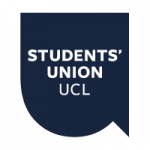Career Profile | Independent Sexual Violence Advocate
By UCL Careers, on 7 February 2019
A former UCL student reflects on how her role as a sabbatical officer for Students’ Union UCL led her to work in the charity sector.
Annie Tidbury was Women’s office for Students’ Union UCL, an experience she describes as “transformative”. Each Spring UCL students elect seven full-time, paid sabbatical officers. Four of the seven act as charity trustees and all gain a great wealth of experience working for a registered charity. The deadline for this year’s nominations is 22nd February at noon. Interested? Find out more on their website and think about nominating yourself or a fellow student!
Annie, what is your current role?
For the past year I’ve been working as an Independent Sexual Violence Advocate – that means that I support and advocate for survivors of sexual violence who are going through the criminal justice system.
What made you decide this was for you?
My time as Women’s Officer is what made me want to work in the women’s movement. Back in 2014, I organised some training for myself and others at the Students’ Union and that training was delivered by the rape crisis centre I currently work for. It was honestly something as small as this that introduced me to the job that I do today.
What experiences helped you along the way?
Being Women’s Officer was really transformative for me and it is undoubtedly the main reason I was accepted onto a charity sector grad scheme after leaving UCL. Let’s be honest; there aren’t very many graduate jobs where you go straight in at the top of an organisation and get to make really big decisions about how it runs. As Women’s Officer I had the time, platform and resources to run university-wide campaigns, change policies and procedures, advocate to management and create the kind of spaces that I wanted to see within the union. All of those things were important in and of themselves, and they also gave me knowledge and skills that have been invaluable ever since; in my role as a project manager at a small charity, as head of membership and communications at a slightly larger learning disability organisation, and now in my role at a rape crisis centre.
I feel that it’s important to say that whilst being a sabbatical officer will almost definitely be useful for whatever you want to do next, your future career should absolutely not be the only reason you stand for election. If you don’t particularly care about the Students’ Union, or the position you’re running for, then you will most likely have a frustrating year and do a bad job. Trust me, it’s happened. But if you do care and if you think that students having collective power is important, then do it and you will reap the rewards throughout your sabbatical year and beyond.
This article was written as part of Charities and NGOs Themed Week.
Find out more about upcoming Themed Weeks on our website!
 Close
Close




